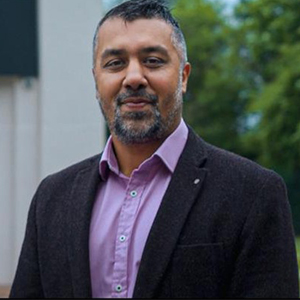These words by Simon Sinek are examined in more detail in his best seller, the Infinite Game. He discusses five themes, namely: having a just cause, trusting teams, worthy rival, existential flexibility and courage to lead. For anyone in a leadership role these themes worth considering and applying within your franchised organisation. The whole concept illustrates how we are cogs in a much bigger machine and that machine needs to have a wider vision and purpose to achieve greatness. It’s a never ending game and one where we all should strive for constant improvement or forwards momentum towards an overarching vision.
Sinek describes the long term vision as having a just cause, it may be unattainable, but it is an inspiration and reason to exist which goes way beyond products and services. Your team becomes the champion of that cause and is willing to go the extra mile to advance towards this ideal state or infinite vision. Having a cause encourages unity and ensures everyone is pulling in the same direction. For Steve Jobs and his team it was about ‘standing up to Big Brother’.
Creating trusting teams is all about leadership nurturing an environment where staff feel safe to be themselves. Trusting teams care about each other and people love working at these organisations. However, creating this environment requires a long term commitment from management. It’s a lifestyle choice to ensure teams feel valued and safe so they can perform at their natural best, always.
Having worthy rival introduces the element of competition. Competitors can reveal weaknesses in your franchised organisation, and this can help you and your colleagues raise their game.
Existential flexibility is the capability to make huge strategic shifts to advance your organisation where failure to do so could ultimately be terminal for the business. Sinek cites the example of Steve Jobs visiting Xerox. He was showed the Graphical User Interface (GUI) which enabled a mouse to select folders and icons. It would mean anyone could use a computer. He said, ‘we must invest’. His colleagues reminded him of the vast investment in another direction but he effectively said, ‘if we don’t invest this will be end of our company.’ He also saw it as a way for the common person to stand up to Big Brother. The investment in the GUI resulted in the creation of the Mac and computers as we know and use them today.
Courage to lead with an infinite mindset is tough. It means doing the right thing for the best long term outcome having a just cause in mind constantly. It requires strong ethics and working towards a goal that is greater than short term financial gain. It is about taking care of and creating a positive impact on the people around us. Sinek gives the opposite example of the Titanic, where 75% of the passengers died when it was only fitted with ¼ of the required lifeboats to save money in the short term. I’m proud that one of Papa Johns values is ‘do the right thing’ and it means as a team we always try and make the correct decisions for our people.
Leaders with an infinite mindset understand the company will be around when they have passed on and they are building it to outperform where it is today, ethically. Companies led by leaders with an infinite mindset have stronger teams and greater levels of innovation. Such leaders also live their lives with this greater cause in mind. Richard Branson asked not to be judged for his work at Virgin, but on the quality of his children.
I’ve been fascinated to learn more about the infinite mindset and encourage franchisees at Papa Johns to take onboard some of this thinking to help them become even more successful with their franchised operations.

































